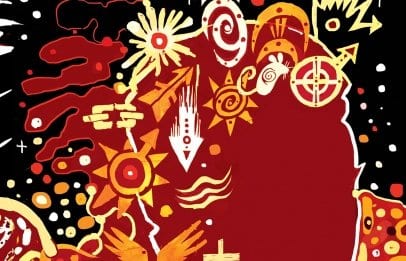Handed out since 1953, the Hugo Awards for best science-fiction novel have never seemed especially controversial — until this year. A number of authors and publishers are boycotting the awards, because they believe a group of voters have stacked the deck against white male heterosexuals.
The Hugo, explains Helen Lewis in The Guardian, “is in the grip of its own culture war, with a group of authors suggesting that the recent success of female and non-white writers is proof that political correctness has spread its tentacles so far that it is now ruining stories that include actual tentacles.” The champions of these apparently marginalized white writers call themselves “Sad Puppies,” and Game of Thrones creator George RR Martin actually fears that the Puppies “have broken the Hugo awards, and I am not sure they can ever be repaired.”
But the success of female and non-white writers isn’t exactly new. Back in the 1980s, pioneering author Octavia Butler won three Hugos for her brilliant short stories. She is a giant among sci-fi authors, even though she feared her work would go unread by a public uninterested in a typically disrespected genre.
“I didn’t decide to become a science-fiction writer,” Butler told Black Scholar magazine in 1985,“I was writing my own little stories and when I was 12, I was watching a bad science-fiction movie called Devil Girl from Mars and decided that I could write a better story than that. And I turned off the TV and proceeded to try, and I’ve been writing science fiction ever since.”

Whether in her time-travel novel Kindred, her vampire novel Fledgling or her alien-invasion Xenogenesis trilogy, Butler’s work deftly explores race, gender and sexuality, and it continues to find new generations of fans. Now, she’s being honoured again with Octavia’s Brood, a new collection of “science-fiction stories from social justice movements” that celebrates both her wild imagination and her unwavering committment to social justice. Each of the stories in this new paperback is, says its anarchic publisher AK Press, “an attempt to inject a healthy dose of imagination and innovation into our political practice and to try on new ways of understanding ourselves, the world around us, and all the selves and worlds that could be.”
While Butler always seemed somewhat shy about discussing her sexuality, she’s been claimed by queer people as a champion. Consider this conversation in her 1976 novel Pattern Maker:
“Which do you prefer, Amber, really?”
She did not pretend to misunderstand him. “I’ll tell you,” she said softly. “But you won’t like it.”
He looked away from her. “I asked for the truth. Whether I like it or not, I have to know . . .”
“When I meet a woman who attracts me, I prefer women,” she said. “And when I meet a man who attracts me, I prefer men.”
“You mean you haven’t made up your mind yet.”
“I mean exactly what I said. I told you you wouldn’t like it. Most people who ask want me definitely on one side or the other.”
He thought about that. “No, if that’s the way you are, I don’t mind.”
“Thanks a lot.”
“You know I didn’t mean any offense.”
She sighed. “I know.”
Butler’s work was daring in the ’70s (and apparently still now) because it simply concerned itself with people who weren’t straight, white and male. It’s depressing to think that, even now, there are sci-fi fans who can more readily understand the point of view of an alien creature than that of a black woman.
In a plug for the new collection of stories picking up where Butler left off, Jeff Chang, author of Who We Be: The Colorization of America, writes, “Those concerned with justice and liberation must always persuade the mass of people that a better world is possible. Our job begins with speculative fictions that fire society’s imagination and its desire for change . . . Octavia’s Brood makes for great thinking and damn good reading.”
Someone be sure to tell the Sad Puppies.


 Why you can trust Xtra
Why you can trust Xtra


